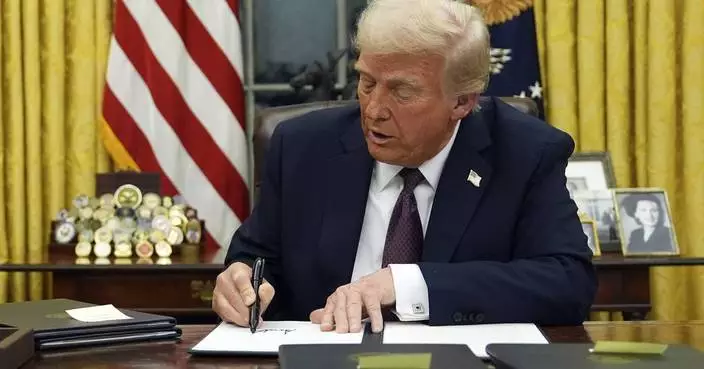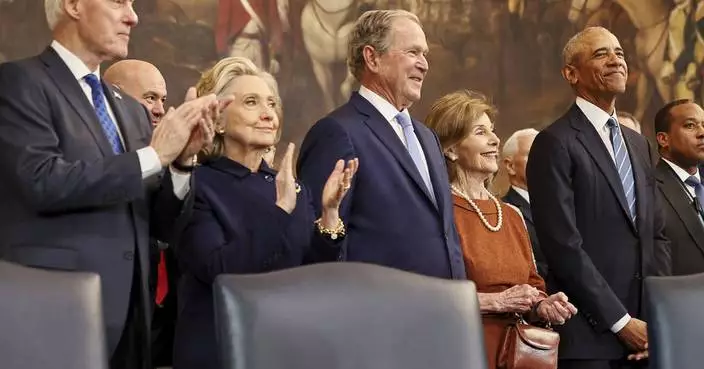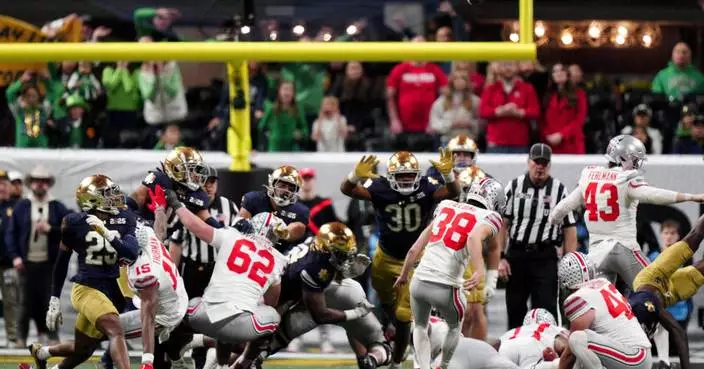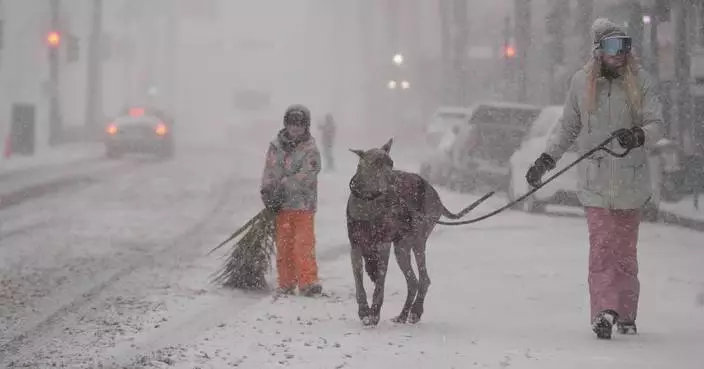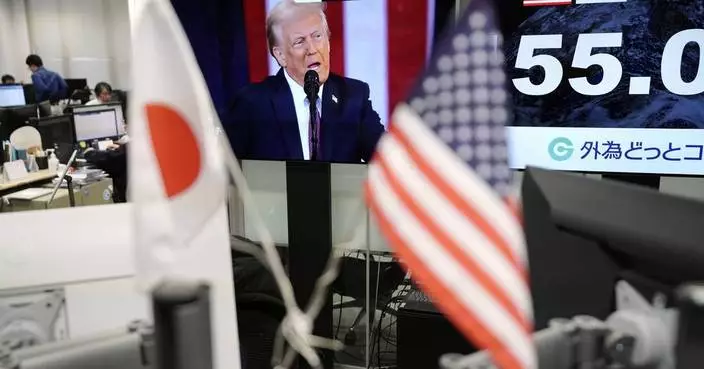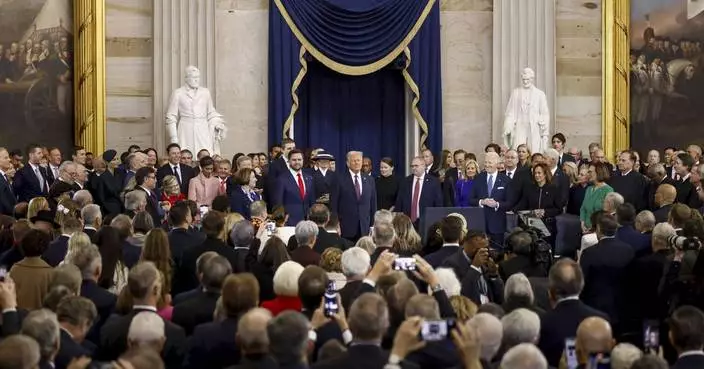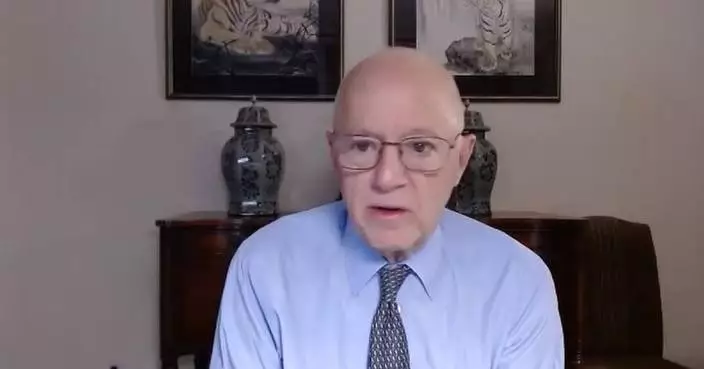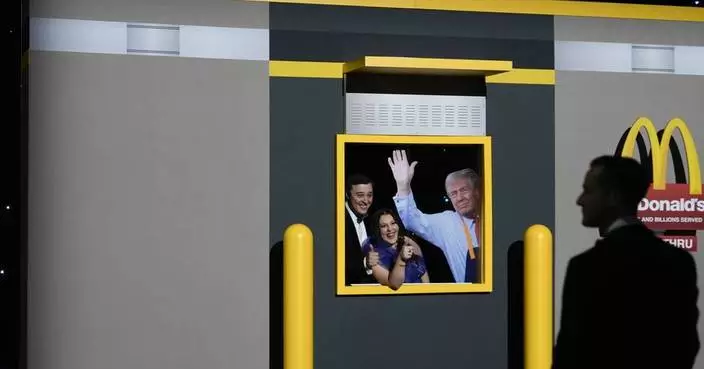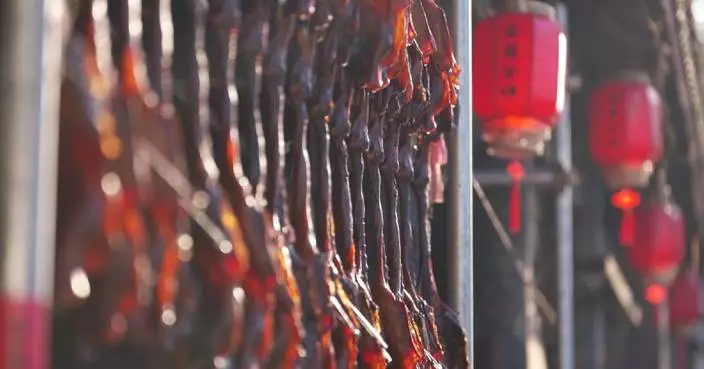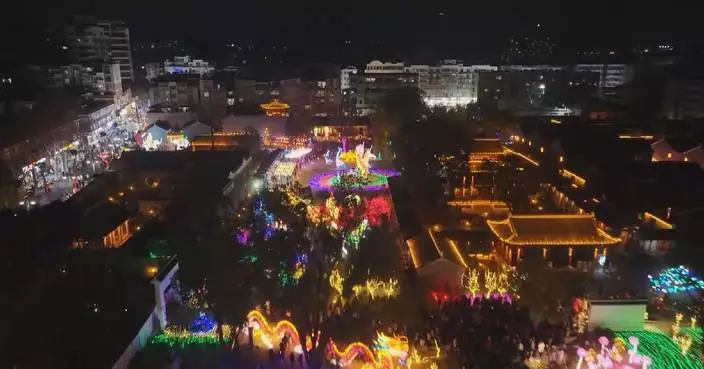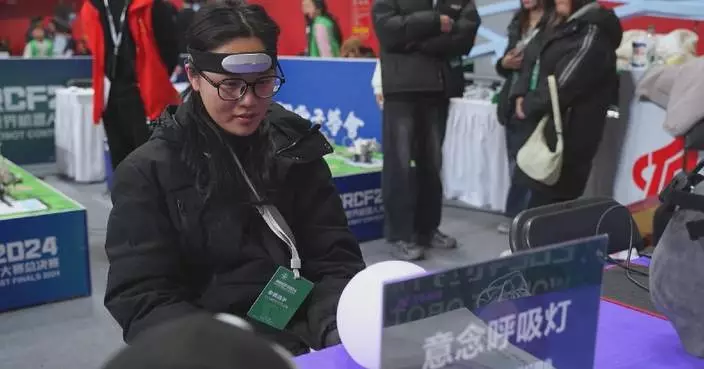TOPEKA, Kan. (AP) — Kansas is no longer enforcing a 3-year-old law making it a felony to impersonate election officials as it faces a legal challenge from critics who argue that the law has hindered efforts to register new voters.
Attorneys for the state and groups suing over the law agreed on stopping its enforcement, and District Judge Teresa Watson in Shawnee County, home to the state capital of Topeka, issued an order earlier this week ratifying their agreement. Her order will remain in effect at least until another court hearing after the November election.
The law made “falsely representing” an elections official punishable by up to 13 months in prison for a first-time offender, though two years' probation would have been the most likely sentence. The crime includes causing someone to believe another person is an election official. The Republican-controlled Legislature enacted the law in 2021 by overriding a veto by Democratic Gov. Laura Kelly.
The groups challenging the law argue it's so vague that volunteers who register voters could face criminal charges if someone mistakenly believes they are election officials, even if those volunteers are clear that they aren't verbally, in writing or on signs. State officials have scoffed at that argument, but groups curtailed their activities, including one involved in the lawsuit, Loud Light, which seeks to register young people.
“We are fired up and ready to register thousands of young Kansans to vote again,” Davis Hammet, Loud Light's president, said in a statement Wednesday, describing the law as a ”voter registration suppression scheme."
The law was among a series of measures tightening election laws approved by GOP legislators who said they were trying to bolster public confidence in elections. There's no evidence of significant fraud, but baseless conspiracies continue to circulate because of former President Donald Trump's false claims that the 2020 presidential election was stolen from him.
This year, GOP lawmakers hoped to settle the groups' legal challenge by rewriting the law so that someone would have to intentionally impersonate an election official to be guilty of a crime. They had the backing of the state's top elections official, Secretary of State Scott Scwhab, a Republican who has vouched for the integrity of state elections.
Schwab spokesperson Whitney Tempel said the goal was "reducing voter confusion,” but lawmakers tied the change to another measure limiting the spending of federal funds on state elections. Kelly vetoed it, and Republicans couldn't override her.
“The recent temporary injunction issued underscores our concerns and continues to highlight the need to clarify this law,” Tempel said in a statement.
Besides Loud Light, the other groups involved in the lawsuit are the League of Women Voters of Kansas, the Kansas Appleseed Center for Law and Justice and the Topeka Independent Living Resource Center, which advocates for voters with disabilities.
Watson initially refused in 2021 to block the law's enforcement and a state Court of Appeals panel later dismissed the case. But in December, the Kansas Supreme Court revived it, saying the law is vague enough for the groups to contest it.
In May, in a follow-up ruling that involved challenges to other election laws, the Supreme Court directed Watson to reconsider blocking the anti-impersonation law.
But that received far less attention than what the Supreme Court said about voting rights generally.
An article of the state constitution allows people 18 and older to vote, it requires “proper proofs” of their eligibility. A 4-3 majority of the Supreme Court declared that the constitution's Bill of Rights doesn't protect voting as an “inalienable natural” right — an idea the dissenters passionately rejected — significantly lessening the chances that legal challenges to restrictions will succeed.
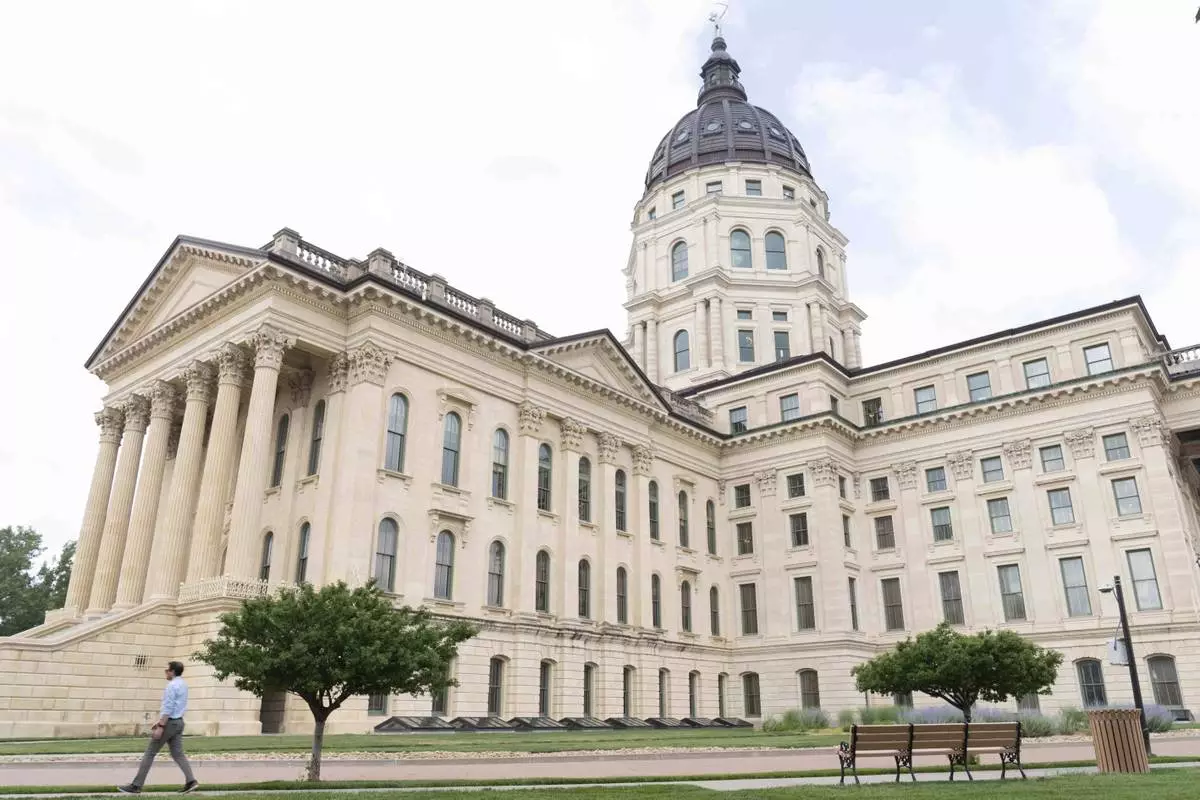
FILE - A man walks past the Kansas Statehouse from the north in Downtown Topeka, Kan., on June 17, 2024. Kansas is no longer enforcing a 3-year-old law making it a felony to impersonate election officials. (Evert Nelson/The Topeka Capital-Journal via AP, File)

FILE - Davis Hammet, executive director of the voting rights group Loud Light, follows a Kansas Supreme Court hearing on legal challenges to election laws from Loud Light and three other groups, Nov. 3, 2023, in Topeka, Kan. Kansas is no longer enforcing a 3-year-old law making it a felony to impersonate election officials in as it faces a legal challenge from critics who argue that the law has hindered efforts to register new voters. (Rachel Mipro/Kansas Reflector via AP, POOL, File)
President Donald Trump moved to end a decades-old immigration policy known as birthright citizenship when he ordered the cancellation of the constitutional guarantee that U.S.-born children are citizens regardless of their parents’ status.
Trump's roughly 700-word executive order, issued late Monday, amounts to a fulfillment of something he's talked about during the presidential campaign. But whether it succeeds is far from certain as attorneys general in 18 states and two cities challenged the order in court on Tuesday, seeking to block the president.
Here's a closer look at birthright citizenship, Trump's executive order and reaction to it:
Birthright citizenship means anyone born in the U.S. is a citizen, regardless of their parents' immigration status. People, for instance, in the United States on a tourist or other visa or in the country illegally can become the parents of a citizen if their child is born here.
It's been in place for decades and enshrined in the 14th Amendment to the Constitution, supporters say. But Trump and allies dispute the reading of the amendment and say there need to be tougher standards on becoming a citizen.
The order questions that the 14th Amendment extends citizenship automatically to anyone born in the United States.
The 14th Amendment was born in the aftermath of the Civil War and ratified in 1868. It says: “All persons born or naturalized in the United States and subject to the jurisdiction thereof, are citizens of the United States and of the State wherein they reside.”
Trump's order excludes the following people from automatic citizenship: those whose mothers were not legally in the United States and whose fathers were not U.S. citizens or lawful permanent residents; people whose mothers were in the country legally but on a temporary basis and whose fathers were not citizens or legal permanent residents.
It goes on to bar federal agencies from recognizing the citizenship of people in those categories. It takes effect 30 days from Tuesday, on Feb. 19.
The 14th Amendment did not always guarantee birthright citizenship to all U.S.-born people. Congress did not authorize citizenship for all Native Americans born in the United States, for instance, until 1924.
In 1898 an important birthright citizenship case unfolded in the U.S. Supreme Court. The court held that Wong Kim Ark, who was born in San Francisco to Chinese immigrants, was a U.S. citizen because he was born in the country. After a trip abroad, he had faced denied reentry by the federal government on the grounds that he wasn't a citizen under the Chinese Exclusion Act.
But some advocates of immigration restrictions have argued that while the case clearly applied to children born to parents who are both legal immigrants, it’s less clear whether it applies to children born to parents without legal status.
Eighteen states, plus the District of Columbia and San Francisco sued in federal court to block Trump's order.
New Jersey Democratic Attorney General Matt Platkin said Tuesday the president cannot undo a right written into the Constitution with a stroke of his pen.
“Presidents have broad power but they are not kings,” Platkin said.
Not long after Trump signed the order, immigrant rights groups filed suit to stop it.
Chapters of the American Civil Liberties Union in New Hampshire, Maine and Massachusetts along with other immigrant rights advocates filed a suit in New Hampshire federal court.
The suit asks the court to find the order to be unconstitutional. It highlights the case of a woman identified as “Carmen," who is pregnant but is not a citizen. The lawsuit says she has lived in the United States for more than 15 years and has a pending visa application that could lead to permanent status. She has no other immigration status, and the father of her expected child has no immigration status either, the suit says.
“Stripping children of the ‘priceless treasure’ of citizenship is a grave injury,” the suit said. "It denies them the full membership in U.S. society to which they are entitled."
In addition to New Jersey and the two cities, California, Massachusetts, Colorado, Connecticut, Delaware, Hawaii, Maine, Maryland, Michigan, Minnesota, Nevada, New Mexico, New York, North Carolina, Rhode Island, Vermont, and Wisconsin joined the lawsuit to stop the order.
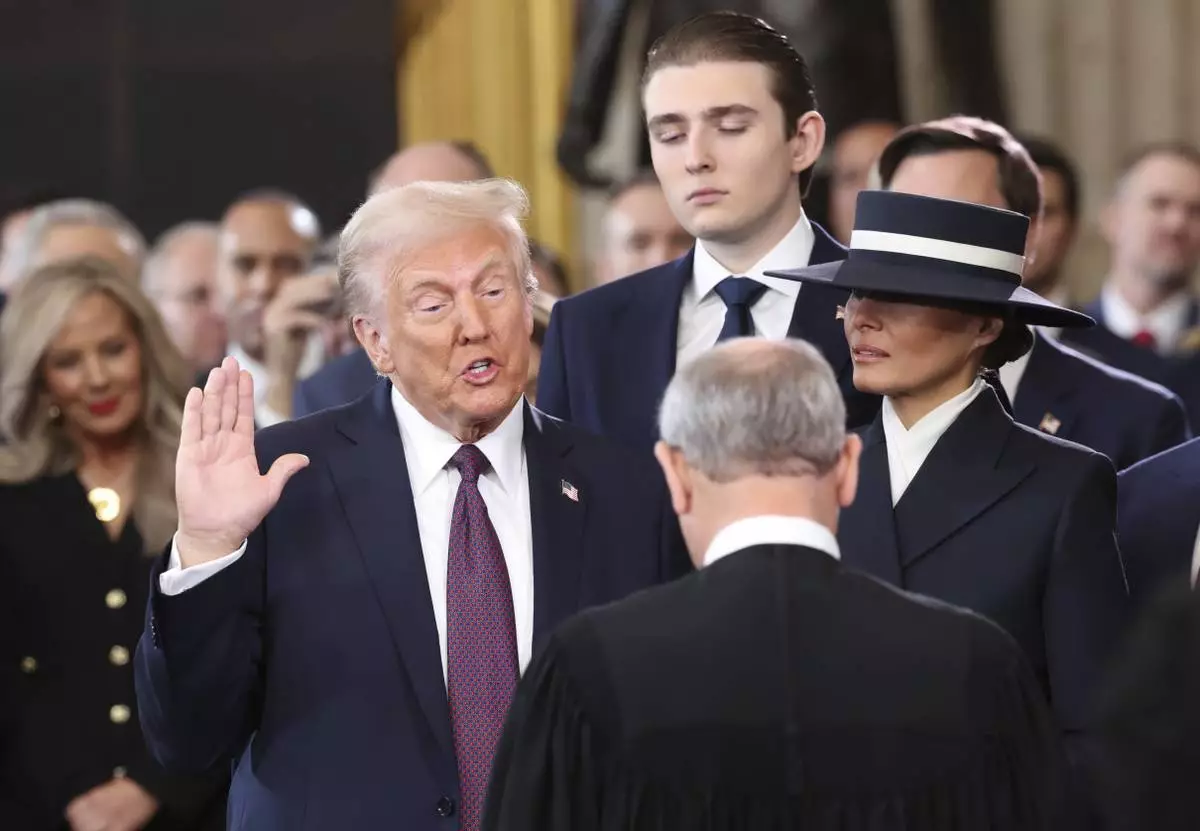
President-elect Donald Trump, from left, takes the oath of office as Barron Trump and Melania Trump watch at the 60th Presidential Inauguration in the Rotunda of the U.S. Capitol in Washington, Monday, Jan. 20, 2025. (Kevin Lamarque/Pool Photo via AP)
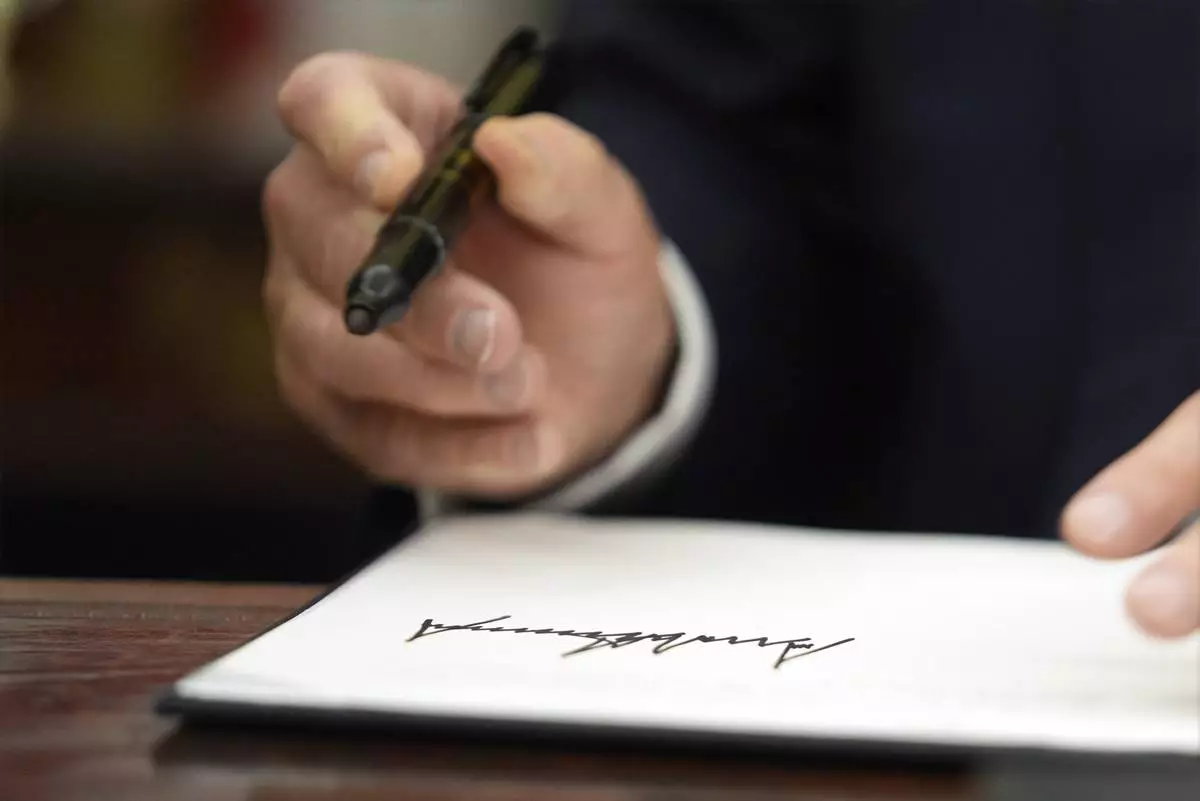
President Donald Trump signs executive orders in the Oval Office of the White House, Monday, Jan. 20, 2025, in Washington. (AP Photo/Evan Vucci)
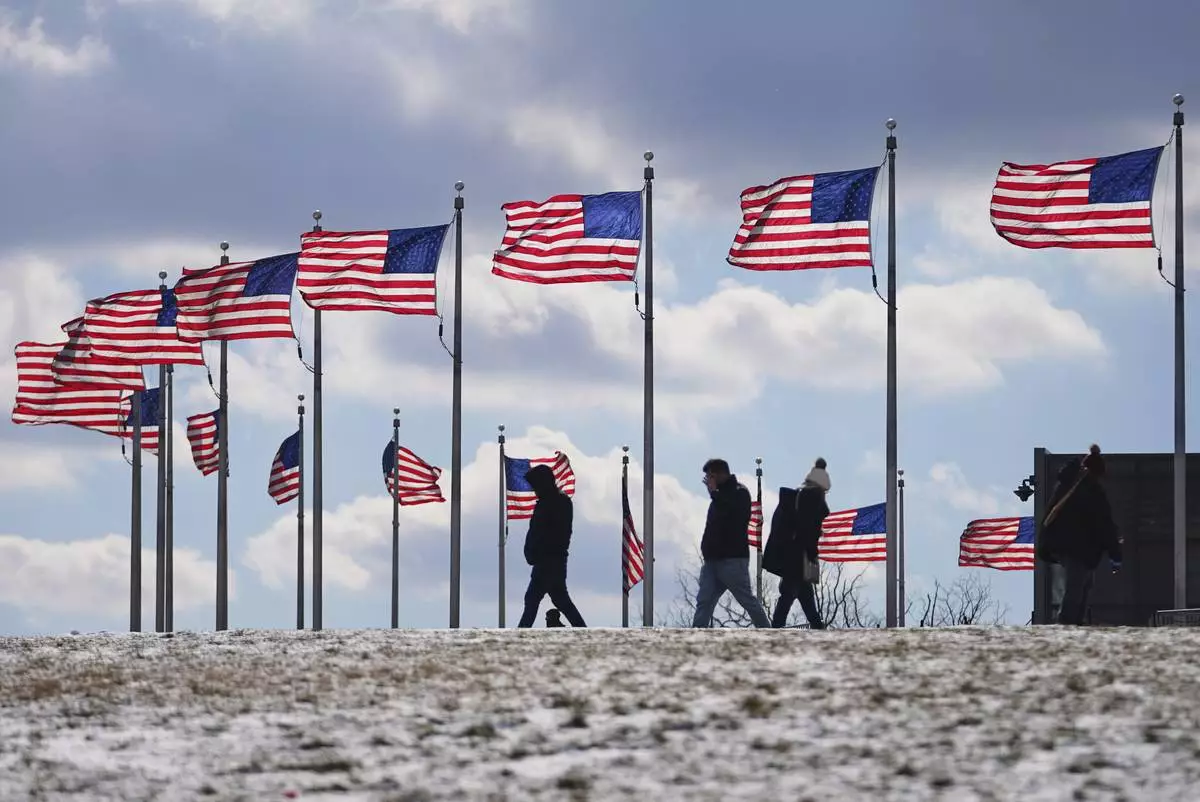
U.S. flags around the Washington Monument are at full staff during the 60th Presidential Inauguration, Monday, Jan. 20, 2025, in Washington. Flags are supposed to fly at half-staff through the end of January out of respect for former President Jimmy Carter, who died Dec. 29, 2024. (AP Photo/Julio Cortez)

A young man reacts to information on how to prepare for the upcoming changes to undocumented families living in the U.S., Sunday, Jan. 19, 2025, in Miami. (AP Photo/Marta Lavandier)
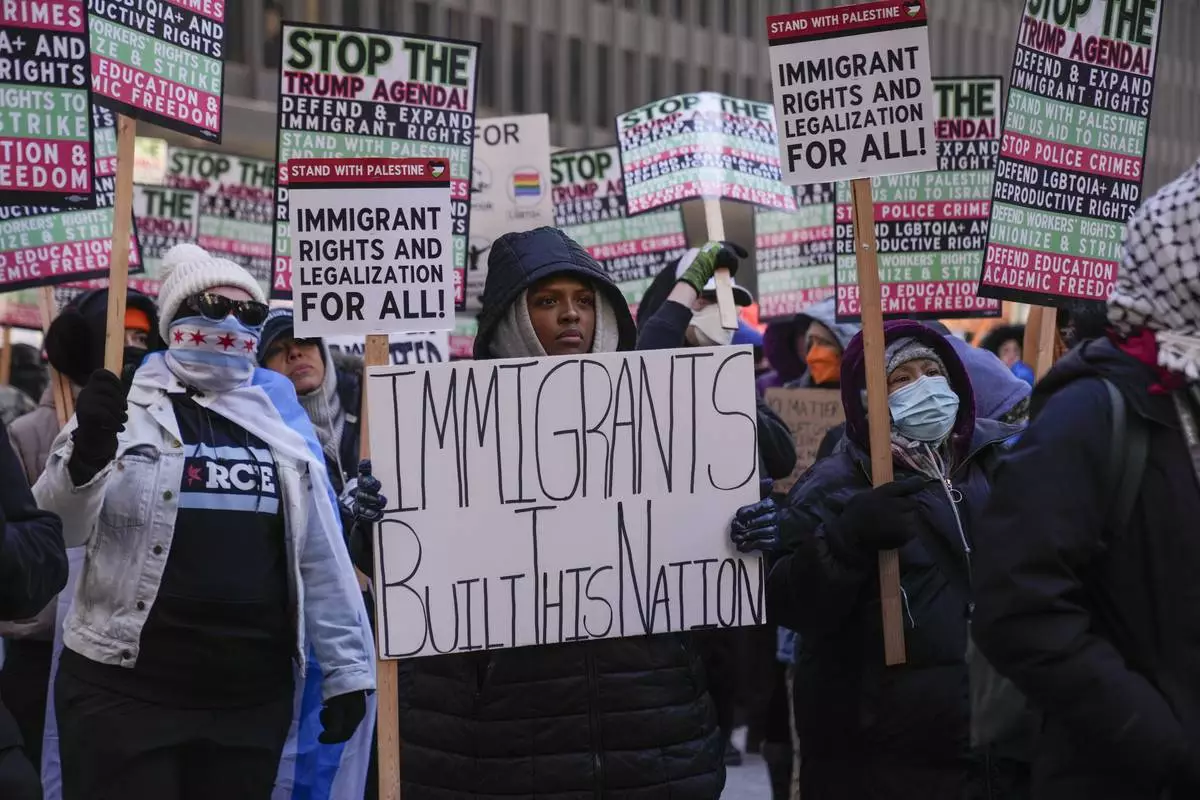
Sonia Rosa Sifore and other anti-Trump protesters gather in Federal Plaza to rally for a number of issues, including immigrant rights, the Israel-Hamas war, women's reproductive rights, racial equality and others, on the day of President Trump's Inauguration, Monday, Jan. 20, 2025, in Chicago. (AP Photo/Erin Hooley)
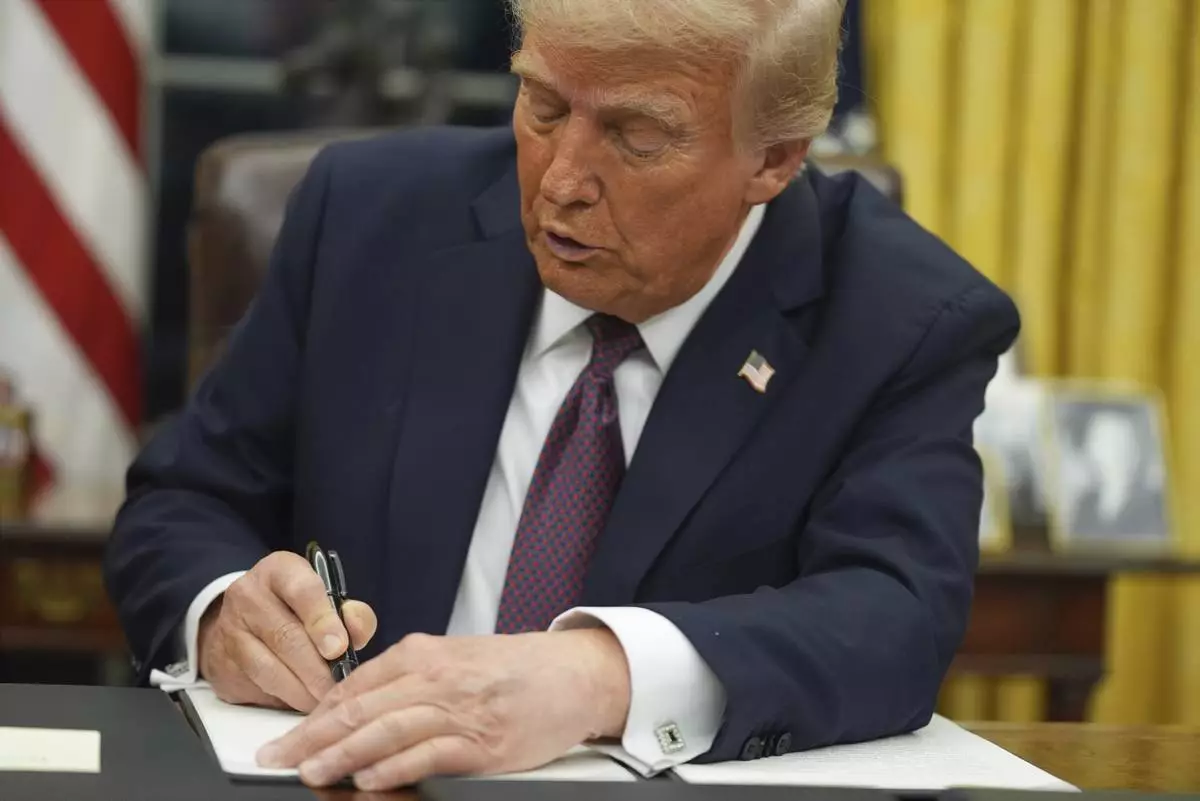
President Donald Trump signs an executive order on birthright citizenship in the Oval Office of the White House, Monday, Jan. 20, 2025, in Washington. (AP Photo/Evan Vucci)












